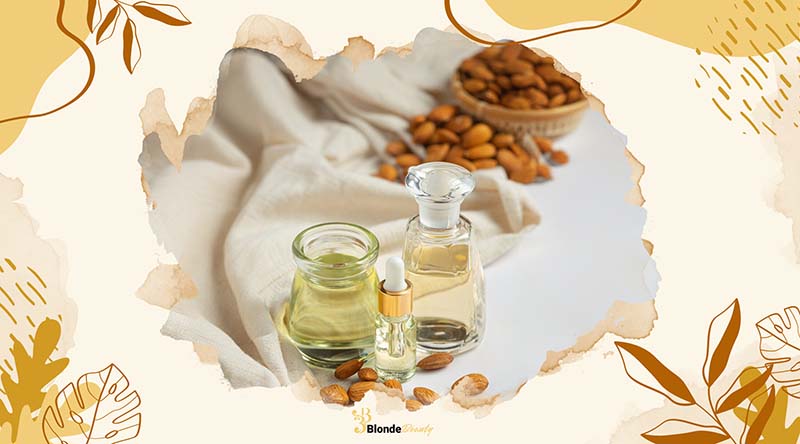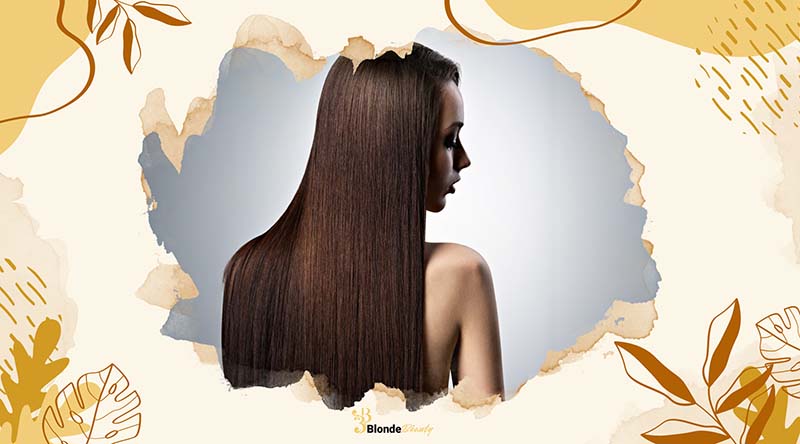Almond oil is derived from pressing almond nuts to extract their oil. Valued in many ancient cultures for its healing and health properties, almond oil is rich in protein, omega-9 fatty acids, and vitamin E.
These beneficial components suggest that almond oil can enhance the shine and strength of your hair. Sweet almond oil is the most commonly sold and recommended type for hair care. Continue reading to explore the question: Is almond oil good for your hair?
Is Almond Oil Good for Hair?
Yes, almond oil is beneficial for your hair, especially for moisturizing and smoothing. Almond oil, derived from the fruits of almonds (Prunus amygdalus) native to the Middle East and the Indian subcontinent, is packed with fatty acids such as oleic, linoleic, and palmitic, and is a rich source of vitamin E.
Dermatology nurse practitioner Jodi LoGerfo, DNP, notes that while studies are limited, these components contribute to almond oil’s effectiveness. Certified trichologist Kerry E.
Yates adds that almond oil is excellent for both hair and scalp, acting as a natural antioxidant that protects, while the added vitamins, minerals, and fatty acids condition your hair and skin.

Benefits of Almond Oil for Hair
Softens Your Hair
Almond oil is an emollient, rich in essential fatty acids that moisturize both the scalp and hair strands. Regular use leads to healthy, smooth hair with a soft texture. Almond oil penetrates deeply, softening the hair at the roots and calming frizzy texture.

Strengthens Hair and Makes It Easier to Repair
Almond oil is a nourishing oil packed with vitamins like B7 (biotin) and E. These vitamins help your hair become rich and strong.
The antioxidants in vitamin E combat damage from free radicals, pollution, chemicals, and heat. Daily application improves hair texture, fighting dryness and brittleness while repairing the hair structure from the roots.
Promotes Hair Growth
Massaging almond oil into the scalp improves blood circulation to the roots, promoting hair growth and strengthening the hair. The biotin in almond oil reactivates dormant follicles by producing enough keratin to thicken and grow thinning hair.
Treats Scalp Conditions
Almond oil’s antibacterial properties make it excellent for treating scalp issues, especially dandruff. It balances the fungus and yeast causing dandruff and helps with flaky skin by loosening dead skin cells, making them easy to wash out.
How to Use Almond Oil for Hair Growth and Thickness
Almond Oil Head Massage
A head massage with almond oil is an effective way to combat hair loss and promote growth. It nourishes the hair and scalp, bringing your hair back to its best state. This massage also creates a protective layer on your hair, shielding it from sun damage, pollution, and early greying.
- Heat the almond oil to lukewarm before using it.
- Detangle your hair before applying the oil.
- Pour the oil onto your scalp and begin gently massaging it.
- Apply the oil to the length of your hair as well.
- Let it sit for 3–4 hours before washing it out.
Almond Oil Hair Mask
Using methi seeds and banana in this hair mask can prevent dandruff and other hair issues like hair loss. Banana smoothens and adds shine to your hair.
- Combine methi seeds and banana in a blender.
- Add a tablespoon of honey and a teaspoon of almond oil to produce a smooth paste.
- Apply this mask to your scalp and the length of your hair.
- Leave it on for 15-20 minutes and wash it off with lukewarm water.
Almond Oil Serum
An almond oil serum can make your hair appear heavier. Adding aloe vera and lavender enhances the benefits and helps prevent hair loss.
- Mix three drops of lavender oil, two tablespoons of aloe vera gel, and one teaspoon of almond oil.
- Apply the serum to the length of your hair while it is still wet.

Who Should Use Almond Oil for Hair?
Although almond oil is lightweight, it’s best suited for those with dry, normal, or combination hair. If you have an oily scalp or hair, you can still use almond oil conservatively, focusing on the mid-shaft to ends rather than directly on the scalp.
Celebrity hairstylist Orlando Pita notes, “Sweet almond oil is particularly beneficial for dehydrated, dry, damaged, and frizzy hair types.” Its hydrating properties effectively combat dryness, eliminate frizz, and provide a high-quality shine.
Notes:
- Dry Hair: Use almond oil regularly to maintain moisture and manageability.
- Damaged Hair: Almond oil can help repair and protect hair from further damage.
- Frizzy Hair: Apply almond oil to smooth frizz and enhance shine.
- Oily Hair: Apply sparingly on the ends to avoid greasiness while still benefiting from its nourishing properties.
Side Effects of Almond Oil
Sweet almond oil is generally safe for use on hair and skin. However, some people may want to avoid it:
- Tree Nut Allergies: People with tree nut allergies should not use almond oil, as it could trigger an allergic reaction.
- Acne-Prone Skin: Those with acne-prone skin who have not had success with other oils may want to avoid applying almond oil directly to the face, as it may block pores and cause pimples and breakouts.
- Eye Area Use: While almond oil can benefit eyelashes and eyebrows, always ensure that any product used near your eyes is safe and free of contaminants.
Notes:
- Patch Test: Always perform a patch test before using almond oil to check for any allergic reactions.
- Quality Assurance: Use high-quality, pure almond oil to avoid any potential contaminants.
- Moderation: Use almond oil in moderation to avoid clogging pores, especially if you have sensitive or acne-prone skin.
Conclusion
Now you know why and how to use almond oil for hair nourishment and strengthening. Is almond oil good for your hair? Absolutely, unless you have allergies to almonds or other tree nuts. In that case, it’s best to avoid almond oil.
If you are unsure about potential allergies, try a patch test: apply a small amount of oil to your inner elbow, wait 24 hours, and check for any signs of redness or irritation. This simple step ensures you can enjoy the benefits of almond oil safely.
For more insightful articles on health and wellness, be sure to explore additional blogs from Blonde Beauty.

Laureate Professor Clare Collins
Professor Clare Collins is a leading expert in nutrition and dietetics at the School of Health Sciences, part of the College of Health, Medicine and Wellbeing. Her work is changing the way we think about food and health. She grew up as one of nine children and was the first in her family to finish high school and go to college. This background gave her a strong work ethic and a deep appreciation for seizing opportunities.
As the Director of the Hunter Medical Research Institute’s Food and Nutrition Program and a recipient of three NHMRC Research Fellowships, Professor Collins is making a big difference in public health. She focuses on helping people who are often overlooked, using new technologies like apps and online programs to improve their nutrition and reduce the risk of chronic diseases.
Professor Collins is well-respected and has been recognized as a Fellow in four major health and science organizations. She leads a diverse team of experts, including dietitians, computer scientists, and engineers, working together on global health projects.
Her achievements are impressive. She has received over $29 million in research funding, published more than 450 papers, and helped 35 PhD and Master’s students complete their degrees. She’s also active in sharing her knowledge with the public. She has developed tools like the Australian Eating Survey and the Healthy Eating Quiz, and she often appears in the media to talk about nutrition.
PUBLISHED ARTICLES
- Collins, C. (2019). “The Effect of a Pilot Dietary Intervention on Pain Outcomes in Patients Attending a Tertiary Pain Service.”
- Collins, C. (2022). “Variation in cardiovascular disease risk factors among older adults.”
- Collins, C. (2022). “Evaluation of an online intervention for improving stroke survivors’ health-related quality of life: A randomised controlled trial.”
These articles show Professor Collins’s commitment to understanding how better nutrition can improve health. Her work is important for researchers, doctors, and anyone interested in healthy living.
